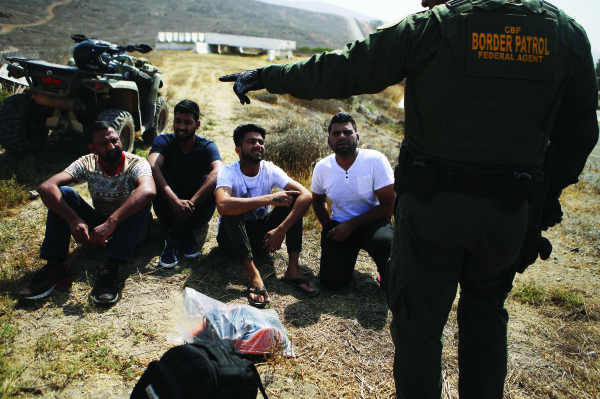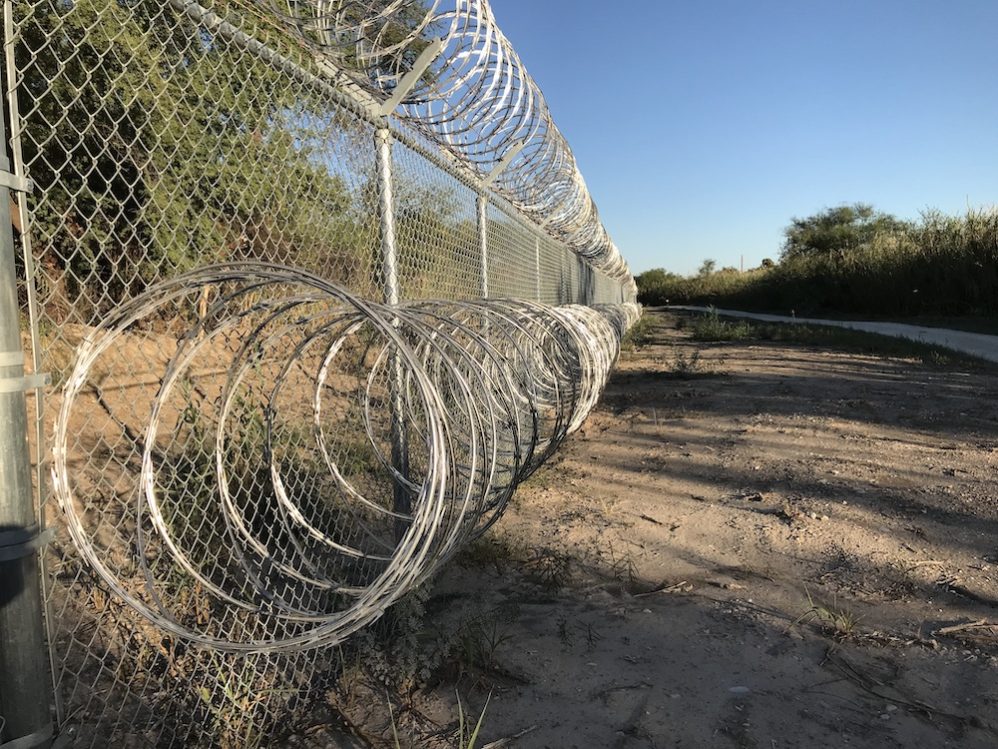What happens in border states when the federal government refuses to enforce immigration laws amid a record surge of illegal immigration? Are those states, and the elected officials charged with maintaining law and order in them, supposed to stand back and accept the ensuing chaos in their communities? Or do they have a right, even a duty, to take action and fill the void left by the federal government?
In Texas, where the border crisis that began as soon as President Biden took office is still in full swing, the answer appears to be that in the face of federal inaction, states must act on their own.
That’s the idea behind “Operation Lone Star,” Gov. Greg Abbott’s evolving and expensive plan to secure the U.S.-Mexico border using thousands of state troopers and Texas National Guardsmen. The operation, launched in March, was initially billed by Abbott as an effort to “deny Mexican Cartels and other smugglers the ability to move drugs and people into Texas,” but has since become a sprawling and controversial experiment in the use of state power to secure an international border.
Democrats have denounced it as illegal and unconstitutional, and called for a Justice Department investigation. Republicans have praised Abbott for taking a stand and pushing the envelope.
Abbott has not asked the Biden administration for permission because he does not believe he needs it. Indeed, the entire operation has been designed to operate exclusively with state resources and agencies, and within the existing confines of state law. That’s both a strength of Abbott’s approach and, as I saw for myself in Del Rio, Texas, a major weakness.
Abbott’s Border Operation Is A Bureaucratic Morass
It’s a weakness because it severely limits what the operation can achieve. The basic idea is that Texas state troopers and National Guard troops will arrest illegal immigrants, who will in turn be prosecuted for misdemeanor criminal trespass in hopes that such prosecutions will serve as a deterrent. Whatever the merits of this approach to border security, it comes with a host of caveats and constraints.
 |
| More non-Spanish speaking migrants are crossing the border |
To begin with, Texas is only arresting single adult men, not women, children, or family units, which means the state is targeting the migrant population most likely to be quickly expelled to Mexico under Title 42, the pandemic public health order that allows federal immigration officials to send migrants back over the border with minimal processing. The migrant men arrested by Texas law enforcement, by contrast, will remain in state custody for weeks or longer, rather than being sent back to Mexico.
Up until last week, migrant men arrested under Operation Lone Star who posted bond would be transferred to Immigration and Customs Enforcement, which would typically expel them under Title 42. But last week ICE told the state it would no longer take custody of these migrants. That means Texas will have to transfer them to U.S. Border Patrol, and as of this writing it remains an open question whether Border Patrol will expel them as they would have under Title 42, had federal agents arrested them, or process them as asylum-seekers.
If the latter, then Operation Lone Star might have the unintended effect of rewarding migrants caught by state authorities: once they’re processed and released by Border Patrol to pursue their asylum claims, migrants have legal status, are allowed to work, and can remain in the United States as their case wends its way through federal immigration courts — a process that can take up to five years.Read the rest from John Daniel Davidson HERE
If you like what you see, please "Like" us on Facebook either here or here. Please follow us on Twitter here.


No comments:
Post a Comment